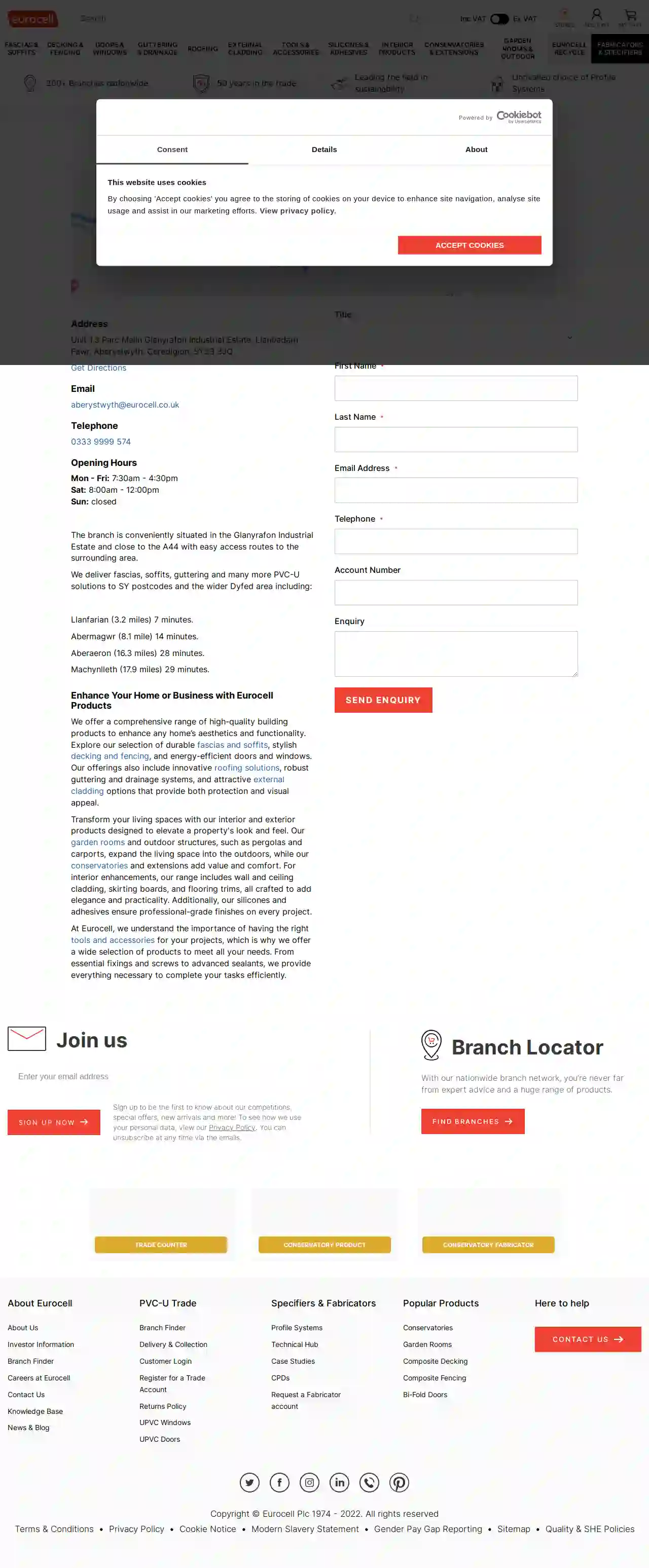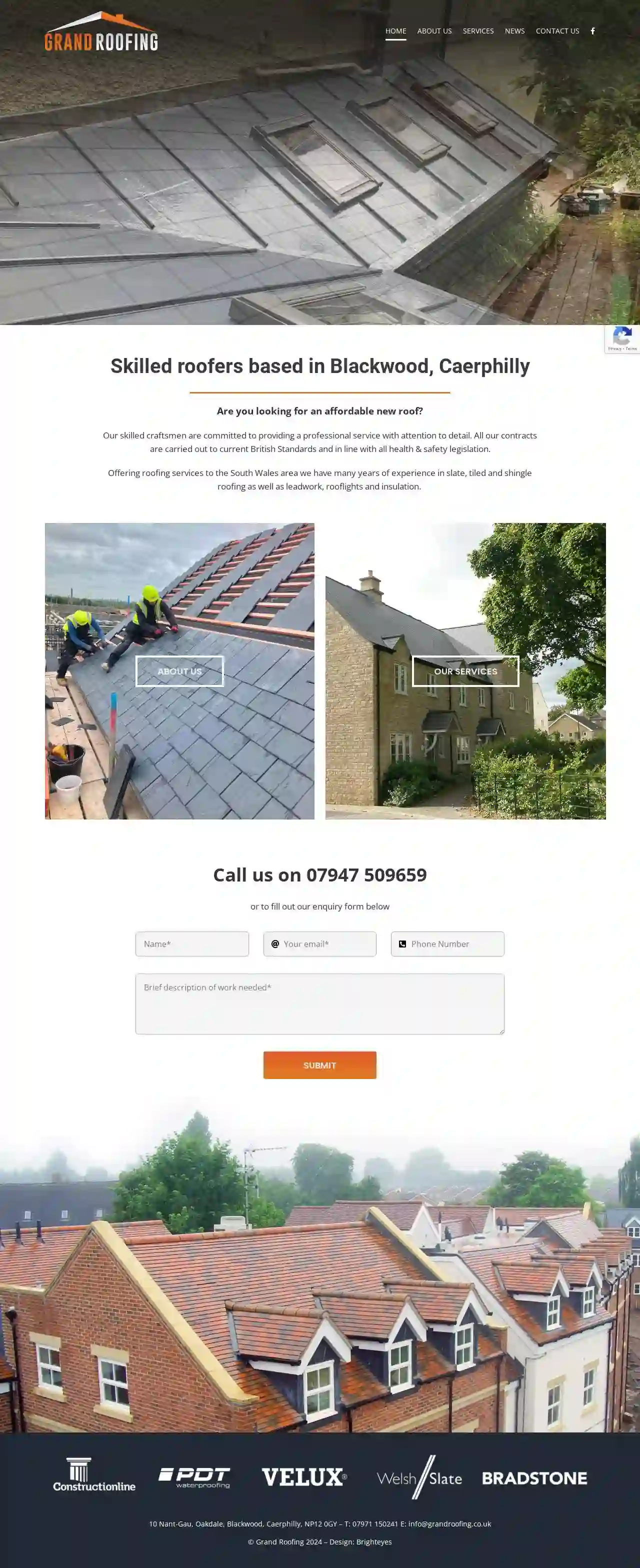Roofing Companies Bishopston
Best Roofing Service in Bishopston
Receive 3 FREE Roofing Services quotes for your project today! Compare profiles, reviews, accreditations, portfolio, etc... and choose the best offer.

DBF Property Services LTD - The Roofing Specialists
4.310 reviewsLong Meadow, Burlescombe, Tiverton, EX16 7YJ, GBDBF Property Services Ltd are fully qualified & experienced roofing contractors. We cover Devon & local areas. We are fully insured and 100% customer satisfaction is our priority. We are the preferred roofing contractors in Devon with full public liability insurance, competitive prices and our skilled workforce. We offer a range of services for residential, commercial, and industrial roofs. Our experienced team is fully qualified and insured to handle all roofing needs. Whether it's a repair, re-roofing, or replacement of flat roofs, fascias, soffits, or guttering, we've got it covered. Our commitment to excellence includes a free survey and detailed quotation. Rest assured, your satisfaction is guaranteed for every project.
- Services
- Why Us?
- Testimonials
- Gallery
Get Quote
LP Contractors | Builders & Roofers
4.47 reviews27 Margaret St, Aberdare, CF44 6SF, GBLP Contractors is a family-run business based in Aberdare, serving both Aberdare and Merthyr Tydfil. We pride ourselves on providing a high standard of workmanship and excellent customer service. We offer a wide range of building and roofing services, from new roofs and repairs to extensions and conservatories. Our team is experienced and qualified, and we always strive to exceed our clients' expectations. We are committed to providing competitive prices and transparent quotes, so you can be confident that you are getting the best value for your money. We understand that your home is your most valuable asset, and we treat every project with the utmost care and attention. Whether you need a small repair or a complete renovation, we have the expertise and experience to get the job done right. Contact us today for a free quote and let us help you create the home of your dreams.
- Services
- Why Us?
- Our Team
- Testimonials
- Gallery
Get Quote
Eurocell Aberystwyth
4.212 reviewsNot provided, GBEurocell is a leading manufacturer of PVCu building products, including windows, doors, conservatories, and roofline systems. With a wide range of products and services, Eurocell helps homeowners and builders create beautiful and functional living spaces. Our products are designed to be durable, low maintenance, and energy efficient, making them a great choice for any project.
- Services
- Why Us?
- Accreditations
- Gallery
Get Quote
Phelps Roofing
52 reviewsGBAt South Wales Roofing Network, our members are dedicated to providing a comprehensive range of roofing services across South Wales. Whether you require domestic, commercial, or industrial roofing solutions, our experienced team can handle all aspects of your project, from installation and maintenance to repairs and replacements. We understand the importance of a well-built roof, and we strive to deliver high-quality workmanship and exceptional customer service. Our commitment to excellence has earned us a reputation as a trusted and reliable roofing partner in the region.
- Services
- Why Us?
- Gallery
Get Quote
Grand Roofing
52 reviewsOakdale, Blackwood, 10 Nant-Gau, NP12 0GY, GBSkilled roofers based in Blackwood, Caerphilly. Are you looking for an affordable new roof? Our skilled craftsmen are committed to providing a professional service with attention to detail. All our contracts are carried out to current British Standards and in line with all health & safety legislation. Offering roofing services to the South Wales area we have many years of experience in slate, tiled and shingle roofing as well as leadwork, rooflights and insulation. Call us on 07947 509659 or to fill out our enquiry form below Thank you for your message. We will look over your details and get in in touch with you as soon as possible.×There was an error trying to send your message. Please try again later.× Submit 10 Nant-Gau, Oakdale, Blackwood, Caerphilly, NP12 0GY – T: 07971 150241 E: [email protected] © Grand Roofing 2024 – Design: Brighteyes
- Services
- Why Us?
- Gallery
Get Quote
Cardiff and Vale Roofing LTD
4.974 reviewsThe Embassy, 389 Newport Rd, Cardiff, GBWe've got you covered for any of your Roofing needs. Cardiff and Vale Roofing are an independent roofing company based in Cardiff supporting the City of Cardiff and surrounding areas. Cardiff and Vale Roofing have over 70 years combined experience in all manner of Roofing and all work is carried out to the highest standard. We pride ourselves on offering the best service to our customers. Cardiff and Vale Roofing is always competitive on price and will provide you with a free, no obligation quote. Contact us today to discuss your roofing requirements.
- Services
- Why Us?
- Gallery
Get Quote
H. Cooper Property Care
3.513 reviewsParis St, Exeter, EX1 2JY, GBH. Cooper Property Care is a family-run business of builders and roofers with over 35 years of experience in the industry. Based in Exeter, they serve Devon and Somerset, offering a range of roofing and property maintenance services. They pride themselves on providing honest, transparent, and affordable services with a focus on quality workmanship and customer satisfaction. Their team is known for their expertise, professionalism, and friendly approach. They offer a wide range of services including roof repairs, flat roof installations, fascias and soffits, and general property maintenance. H. Cooper Property Care is fully insured and offers extended guarantees on all their work, ensuring peace of mind for their clients.
- Services
- Why Us?
- Testimonials
- Gallery
Get Quote- A.
A.M.T Roofing Penarth
4.746 reviews123 Main Street, Suite 100, Los Angeles, 90210, GBAMT Roofing is a locally owned and operated roofing company serving the greater [City, State] area. We specialize in residential and commercial roofing services, including new roof installations, roof repairs, and roof maintenance. Our team of experienced and certified roofers is dedicated to providing high-quality workmanship and exceptional customer service. We use only the best materials and techniques to ensure that your roof is protected for years to come. Contact us today for a free estimate.
- Services
- Why Us?
- Gallery
Get Quote 
Premier Roofing Contractors Ltd
53 reviewsSowton Industrial Estate, Unit 1, The Old Mill, Exeter, EX2 7AA, GBPremier Roofing are one of the South West’s leading roofing contractors with a reputation for providing outstanding quality and reliability. With an impressive client base and experience in installing a wide and varied range of roofing systems, you can trust Premier Roofing to deliver a dependable, long-lasting waterproofing solution. From flat to pitched roofing, we offer a versatile installation service with outstanding technical support. Our experienced Operatives are fully trained by the UK’s leading roofing manufacturers, providing a professional service you can trust. The systems that we install are also backed up by long-term meaningful guarantees, giving you peace of mind that your roof will continue to be watertight for many years to come. Quality is at the heart of everything we do. With investment in the latest quality standards and accreditations, Premier Roofing offers peace of mind to clients seeking a reliable, long-term waterproofing solution.
- Services
- Why Us?
- Gallery
Get Quote
Mark Evans & Sons Roofing Contractors
56 reviewsGBAt South Wales Roofing Network, our members are dedicated to providing a comprehensive range of roofing services across South Wales. Whether you need roof repairs, flat roofing, pitched roofing, fascias and soffits, or any other roofing-related service, our experienced and qualified team can handle it all. We understand the importance of a well-built roof for your home or business, and we strive to deliver high-quality workmanship and exceptional customer service. From small repairs to large-scale projects, we have the expertise and resources to meet your needs. Contact us today to receive a free quote and let us help you protect your investment.
- Services
- Why Us?
- Gallery
Get Quote
Over 12,314+ Roofers registered
Our roofing experts operate in Bishopston and surroundings!
Roofyng.co.uk has curated and vetted Top Roofers in and around Bishopston. Find a reliable pro today.
Frequently Asked Questions About Roofing Companies
- Home Improvement Loans: Offered by banks or credit unions.
- Home Equity Loans or Lines of Credit: Use your home's equity as collateral.
- Government Programs: Check for energy efficiency rebates or grants.
- Contractor Financing: Some roofing companies offer financing plans.
- Leaks or Water Stains: Water stains on ceilings or walls, dripping water, or dampness in the attic.
- Missing, Cracked, or Curled Shingles: Inspect for damaged or missing shingles, especially after a storm.
- Damaged Flashing: Look for rust, corrosion, or gaps in flashing around chimneys, vents, or skylights.
- Sagging or Uneven Rooflines: A sagging roof could indicate structural problems.
- Granule Loss: Excessive granules in gutters suggest aging asphalt shingles.
- Moss or Algae Growth: Can trap moisture and damage roofing materials.
How can I get financing for a new roof?
What is fascia, and why is it important?
What is the difference between a roofer and a general contractor?
Roofer: Specializes in roof installations, repairs, and replacements. They have expertise in roofing materials, techniques, and safety practices specific to roofing.
General Contractor: Oversees and manages entire construction projects, including hiring and coordinating subcontractors, such as roofers, electricians, plumbers, etc. They handle overall project planning, scheduling, and budgeting.
For roofing projects, it's generally best to hire a roofing contractor who specializes in roof work.
What are some common signs of roof damage?
How can I get financing for a new roof?
- Home Improvement Loans: Offered by banks or credit unions.
- Home Equity Loans or Lines of Credit: Use your home's equity as collateral.
- Government Programs: Check for energy efficiency rebates or grants.
- Contractor Financing: Some roofing companies offer financing plans.
What is fascia, and why is it important?
What is the difference between a roofer and a general contractor?
Roofer: Specializes in roof installations, repairs, and replacements. They have expertise in roofing materials, techniques, and safety practices specific to roofing.
General Contractor: Oversees and manages entire construction projects, including hiring and coordinating subcontractors, such as roofers, electricians, plumbers, etc. They handle overall project planning, scheduling, and budgeting.
For roofing projects, it's generally best to hire a roofing contractor who specializes in roof work.
What are some common signs of roof damage?
- Leaks or Water Stains: Water stains on ceilings or walls, dripping water, or dampness in the attic.
- Missing, Cracked, or Curled Shingles: Inspect for damaged or missing shingles, especially after a storm.
- Damaged Flashing: Look for rust, corrosion, or gaps in flashing around chimneys, vents, or skylights.
- Sagging or Uneven Rooflines: A sagging roof could indicate structural problems.
- Granule Loss: Excessive granules in gutters suggest aging asphalt shingles.
- Moss or Algae Growth: Can trap moisture and damage roofing materials.